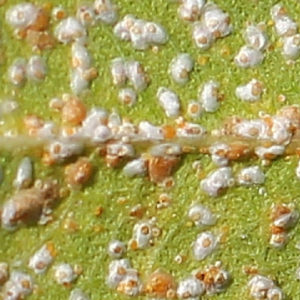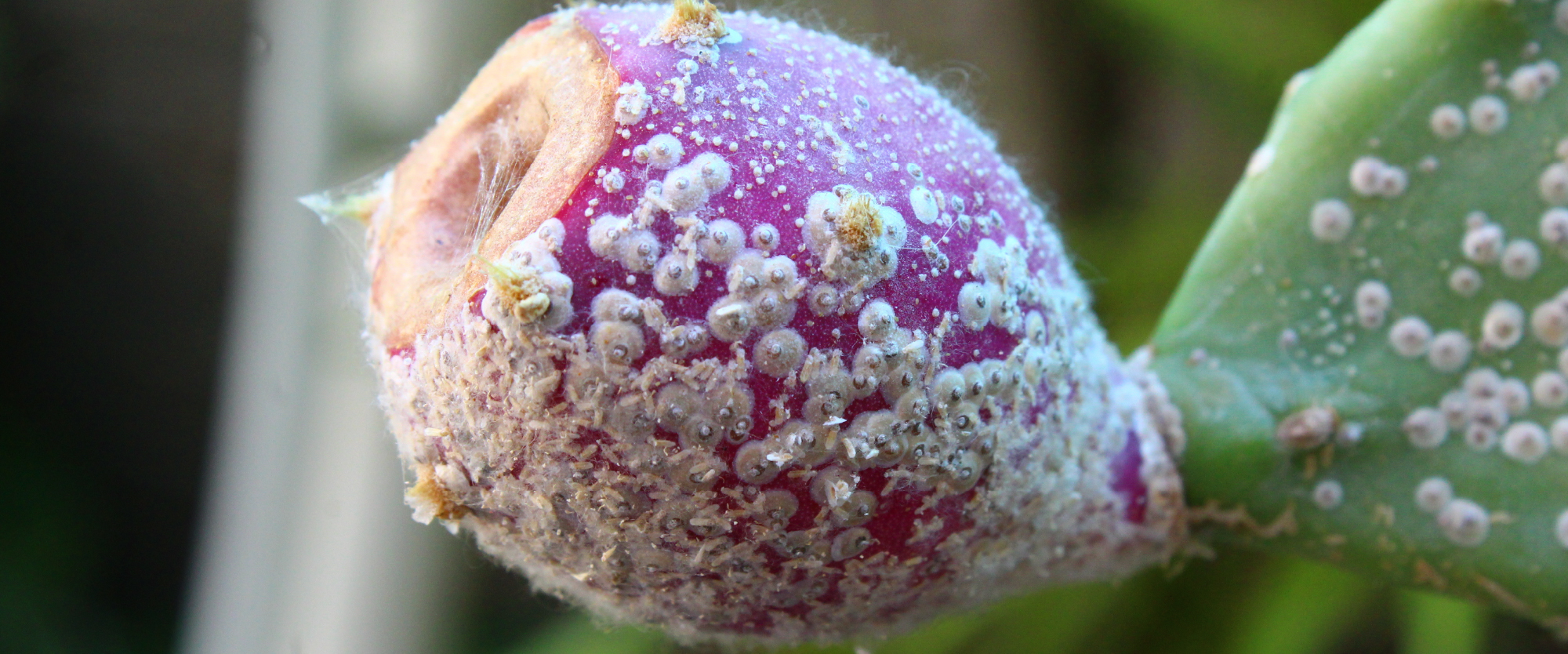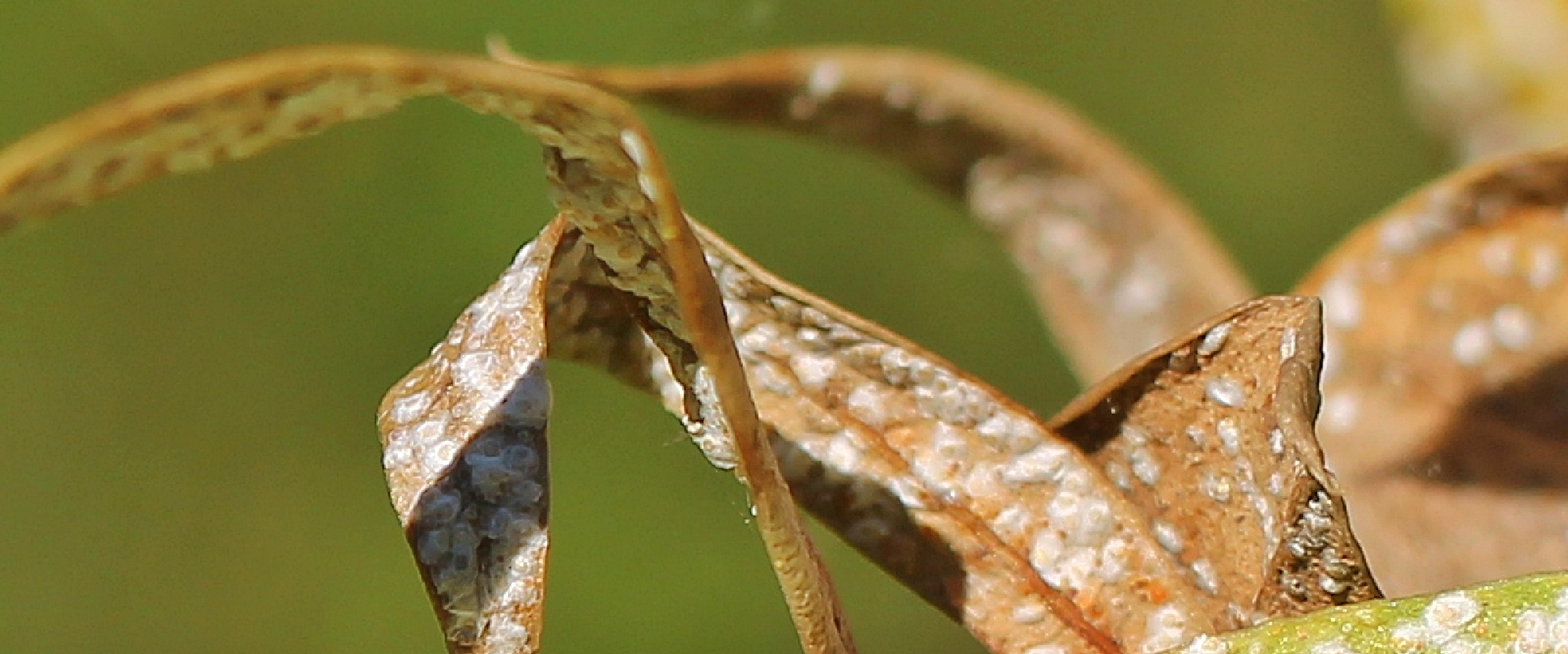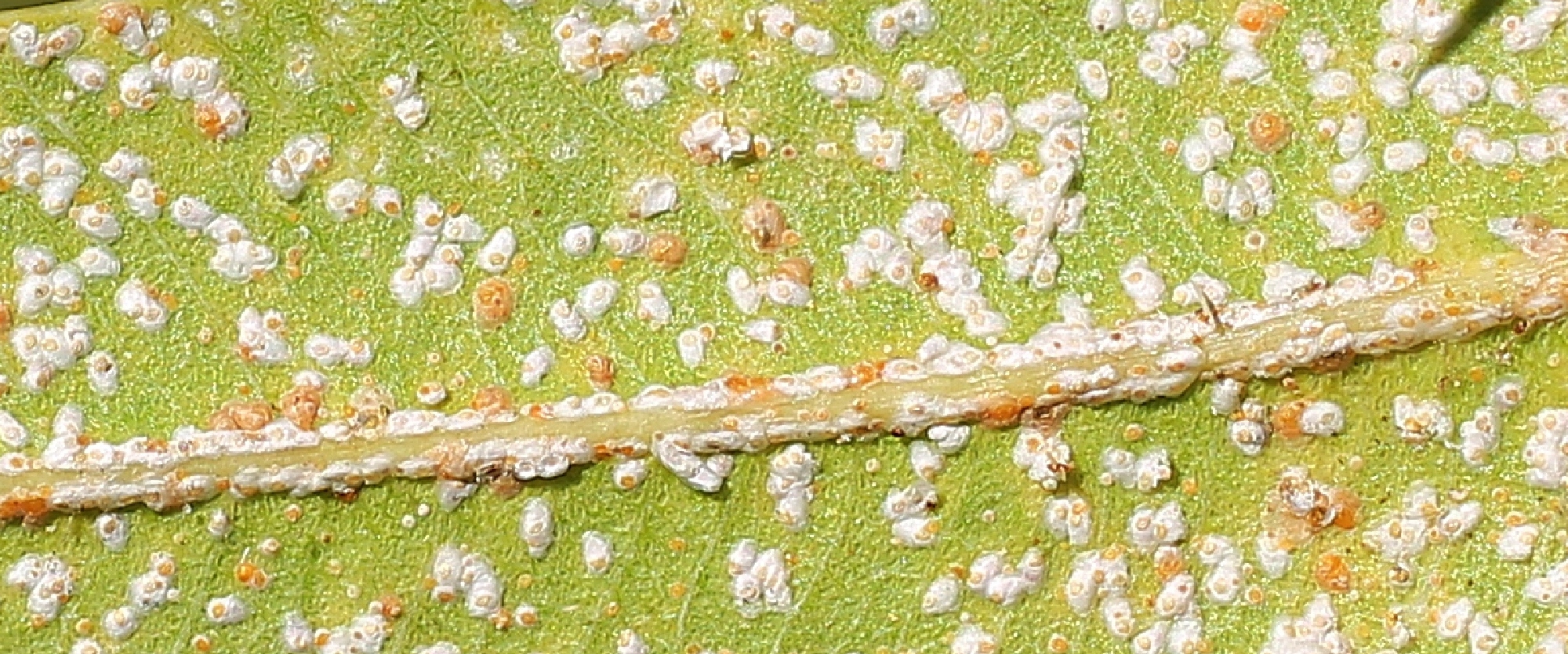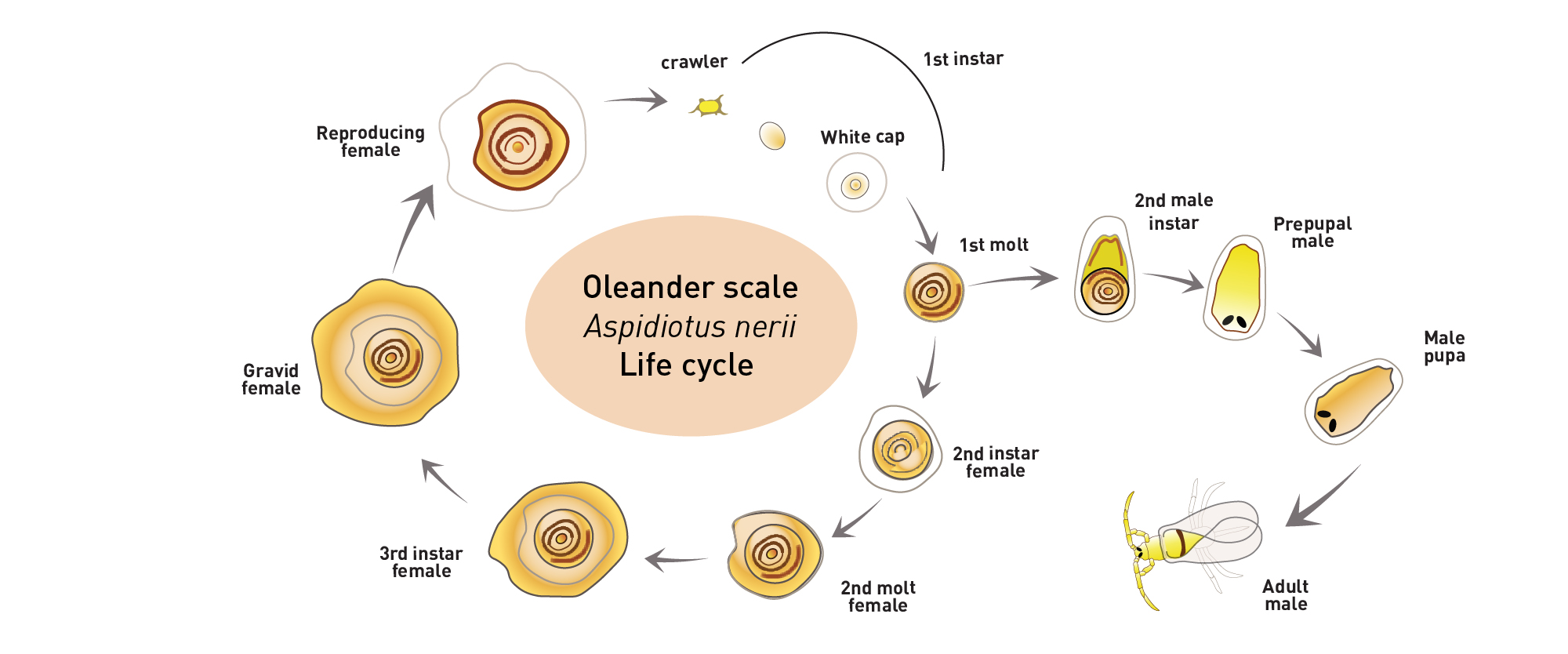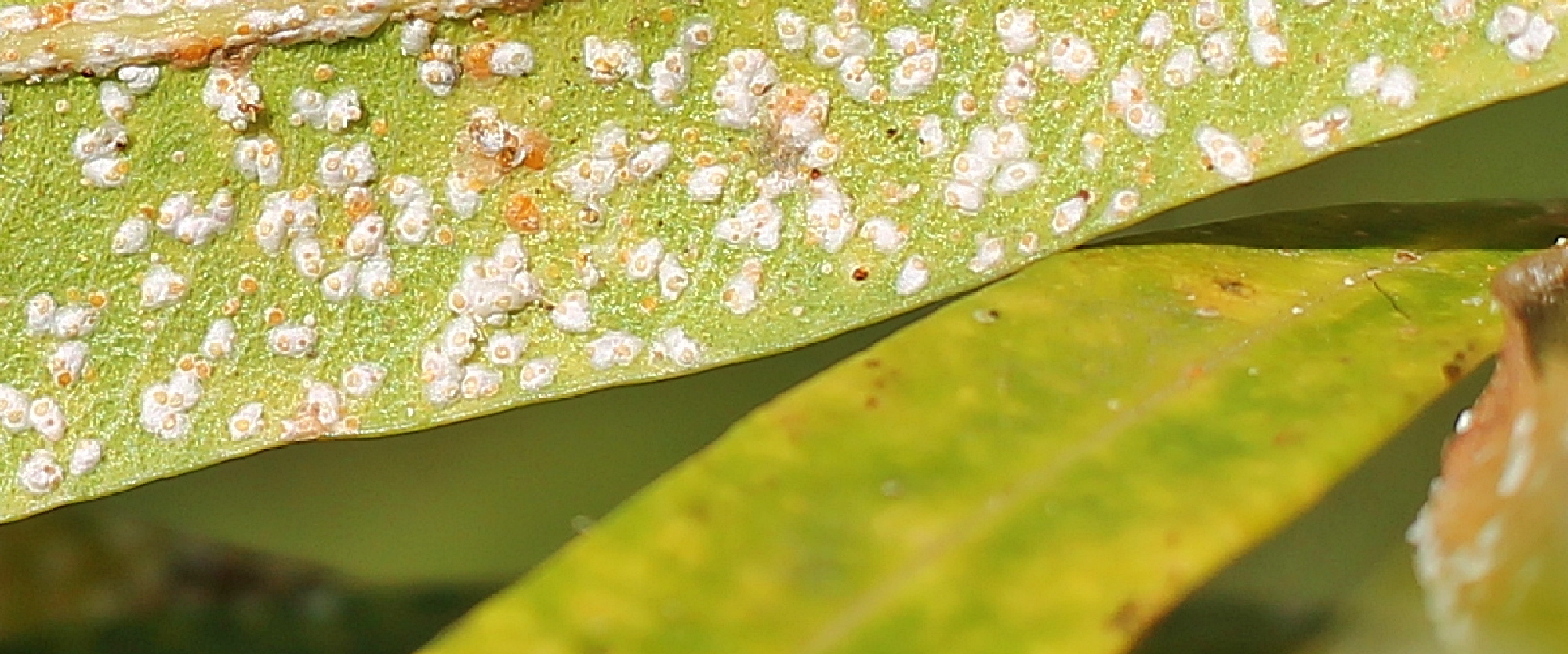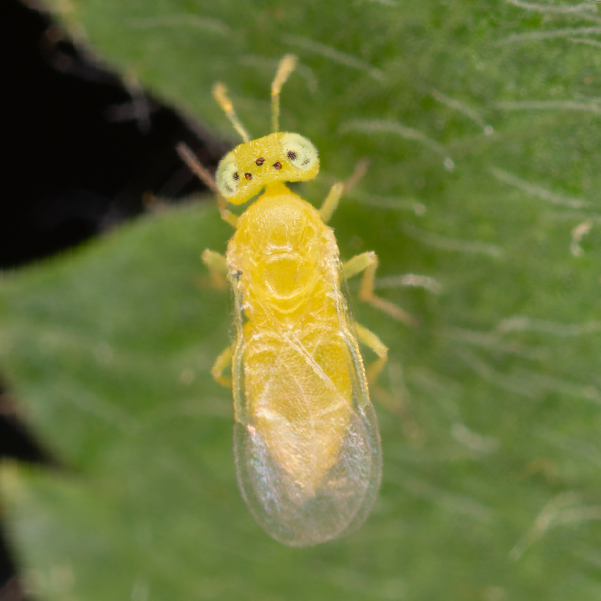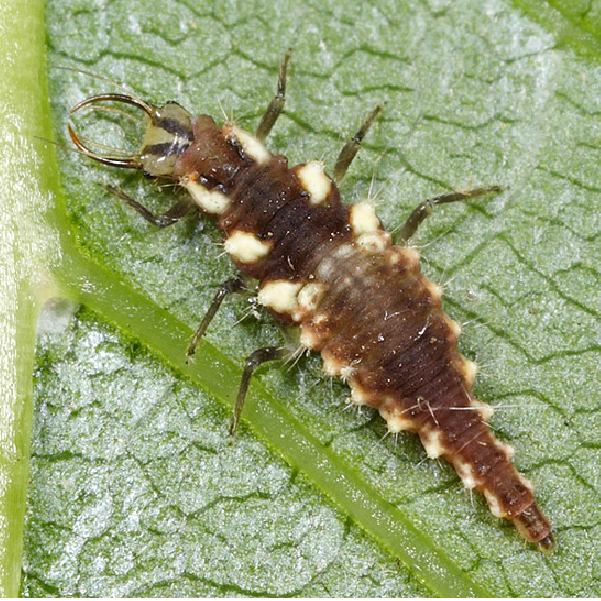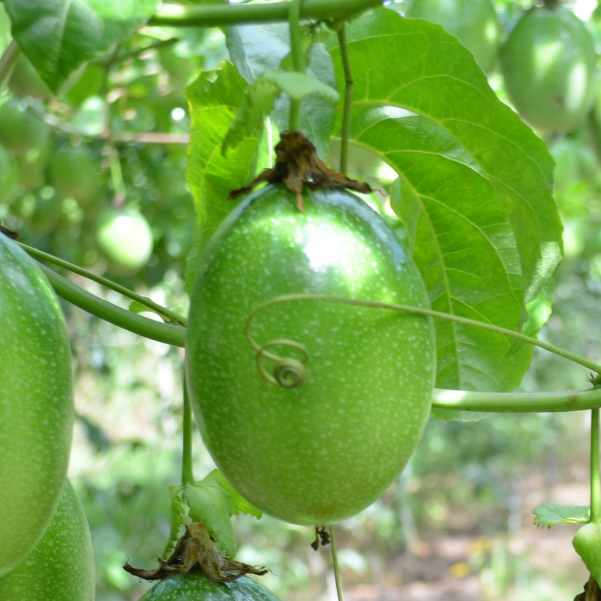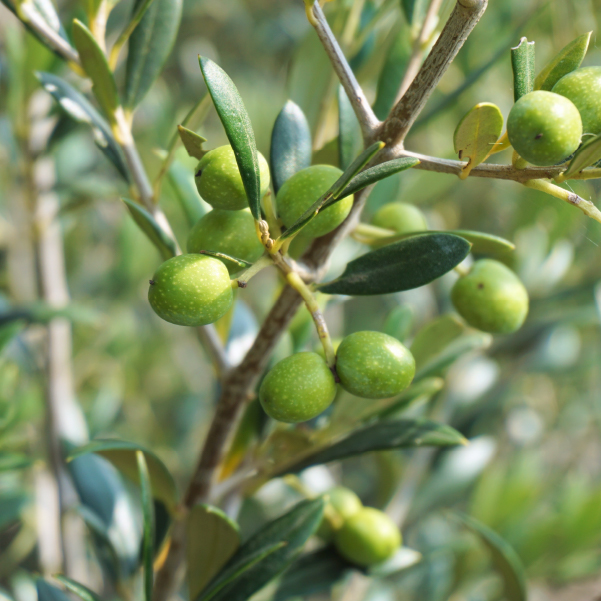The oleander scale (Aspidiotus nerii) also known as ivy scale is a Hemipteran sap sucking insect, that attaches itself to a host plant and remains stationary covered by a scale-like shield. Males and females are visually dimorphic during development; females have a round scale with an off-centered apex covering them. Females attach to the surface of the plant and lay eggs beneath the waxy shield. The crawlers that hatch are then dispersed by wind, birds, mammals or farm workers picking fruit. The crawlers find a suitable spot and settle there, inserting their mouth part into the plant and start feeding. At high temperature there is a noticeable reduction in the fertility rate and high crawler mortality.
Damage
The oleander scale damages the plant by sucking the sap, thus weakening it. Some of the signs of oleander scale damage are: leaf and fruit deformation and discoloration, reducing their market value. Heavy infestations can kill the plants, even well established trees.
There are specific natural enemies for oleander scale.
For more information contact your local BioBee field agent.
